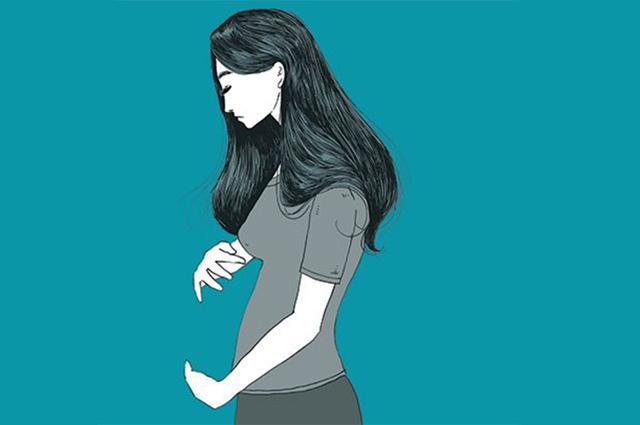You are here
Second-hand smoke tied to miscarriages, stillbirths
By Reuters - Mar 16,2014 - Last updated at Mar 16,2014
NEW YORK – Pregnant women who have been exposed to high levels of second-hand smoke have a higher rate of miscarriages, stillbirths and foetal deaths, a new study suggests.
“We often think of the diseases that second-hand smoke causes as diseases of older people,” epidemiologist Andrew Hyland told Reuters Health. “The results of this study show that second-hand smoke can affect even unborn babies.”
Hyland led the study at the Roswell Park Cancer Institute in Buffalo, New York. He and his colleagues found the pregnancy risks associated with women’s second-hand smoke exposure were almost as high as the risks related to their own cigarette smoking.
The study was the first to investigate the effects of second-hand smoke using quantified, lifetime exposure levels. The analysis arms clinicians like Dr Maurice Druzin, from Stanford University Medical Centre in California, with facts to try to persuade expectant fathers and others living with pregnant women to refrain from smoking at home.
“This is excellent ammunition for us to emphasise what we’ve known for a long time, but now we’ve got data to support it,” Druzin, who was not involved in the study, told Reuters Health.
“This is the first study that shows that second-hand smoke has the same effect as being a primary smoker,” he said. “That is a game changer.”
Hyland’s team used data from a study of 80,762 women between the ages of 50 and 79 years old. Researchers asked the women about their own smoking and the amount of second-hand smoke they were exposed to as children and adults, as well as about their history of pregnancy problems.
Among women who never smoked themselves, the chances of having a stillbirth were 22 per cent higher for those who were exposed to any tobacco smoke than for unexposed women. That was after the researchers took into account other potential contributors, including women’s weight, education and alcohol drinking.
For women who were exposed to the highest lifelong levels of second-hand smoke, the risk of having a stillbirth was even greater — 55 per cent higher than among unexposed women.
The researchers defined the highest level of exposure to second-hand smoke as at least 10 years of exposure during childhood, at least 20 years during adulthood and at least 10 years in the workplace.
At that level, a woman’s risk of a tubal ectopic pregnancy was 61 per cent higher than among unexposed women, and her risk of a miscarriage was 17 per cent higher.
“We’re not talking about an elevated risk of a rare event,” Hyland said of the miscarriage finding. “We’re talking about something that happens all the time.”
Nearly one-third of women in the study reported at least one miscarriage, 4.4 per cent reported at least one stillbirth and 2.5 per cent reported at least one tubal ectopic pregnancy, according to findings published in Tobacco Control.
Ectopic pregnancy occurs when a fertilised egg attaches outside the uterus, usually in one of the fallopian tubes. Tubal pregnancies are the leading cause of maternal death during the first trimester of pregnancy, according to the Centres for Disease Control and Prevention.
Researchers cannot draw firm conclusions about cause and effect from observational studies, like the current one. But the study results point to the benefits of minimising exposure to second-hand smoke, Hyland said.
“There’s a biological plausibility that second-hand smoke could have an impact on these reproductive outcomes not only during the reproductive years but throughout the lifetime of a woman,” he said.
“The take-home message is these never-smoking women who had the highest levels of exposure to second-hand smoke had the highest risks,” he said. “These risks were generally comparable to the risks for women who ever actively smoked.”
Prior research firmly established that smoking during pregnancy is associated with a higher risk of foetal death, the authors write. Smoking during pregnancy also has been linked to infertility, premature birth, low birth weight, birth defects and sudden infant death syndrome, they add.
The American Cancer Society estimates that 10 to 15 per cent of women smoke during pregnancy and that as many as 5 per cent of infant deaths could be prevented if pregnant women did not smoke.
Related Articles
The increased risk of stroke that comes with smoking may extend to non-smokers who live in the same household and breathe in second-hand smo
Some 23 million miscarriages occur every year, according to data pieced together from around the globe by an international team of 31 researchers.
People with asthma may face increased risk from second-hand smoke exposure while riding in the close quarters of a vehicle, according to US researchers.

















